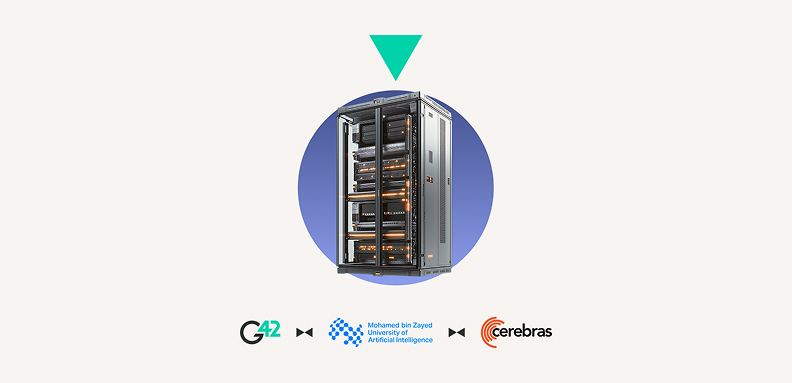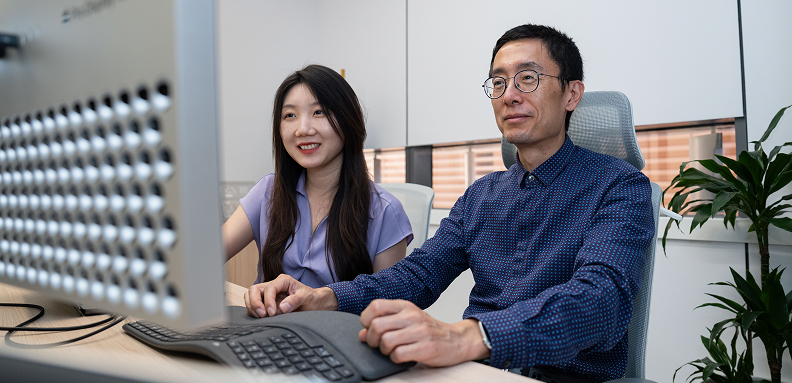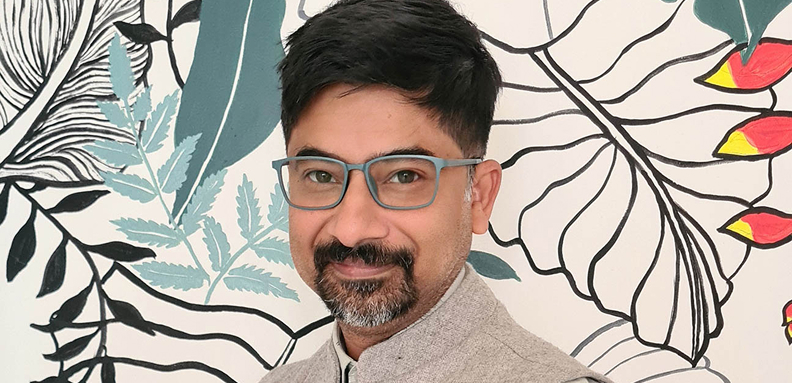Inaugural hackathon explores AI healthcare solutions
Friday, May 05, 2023
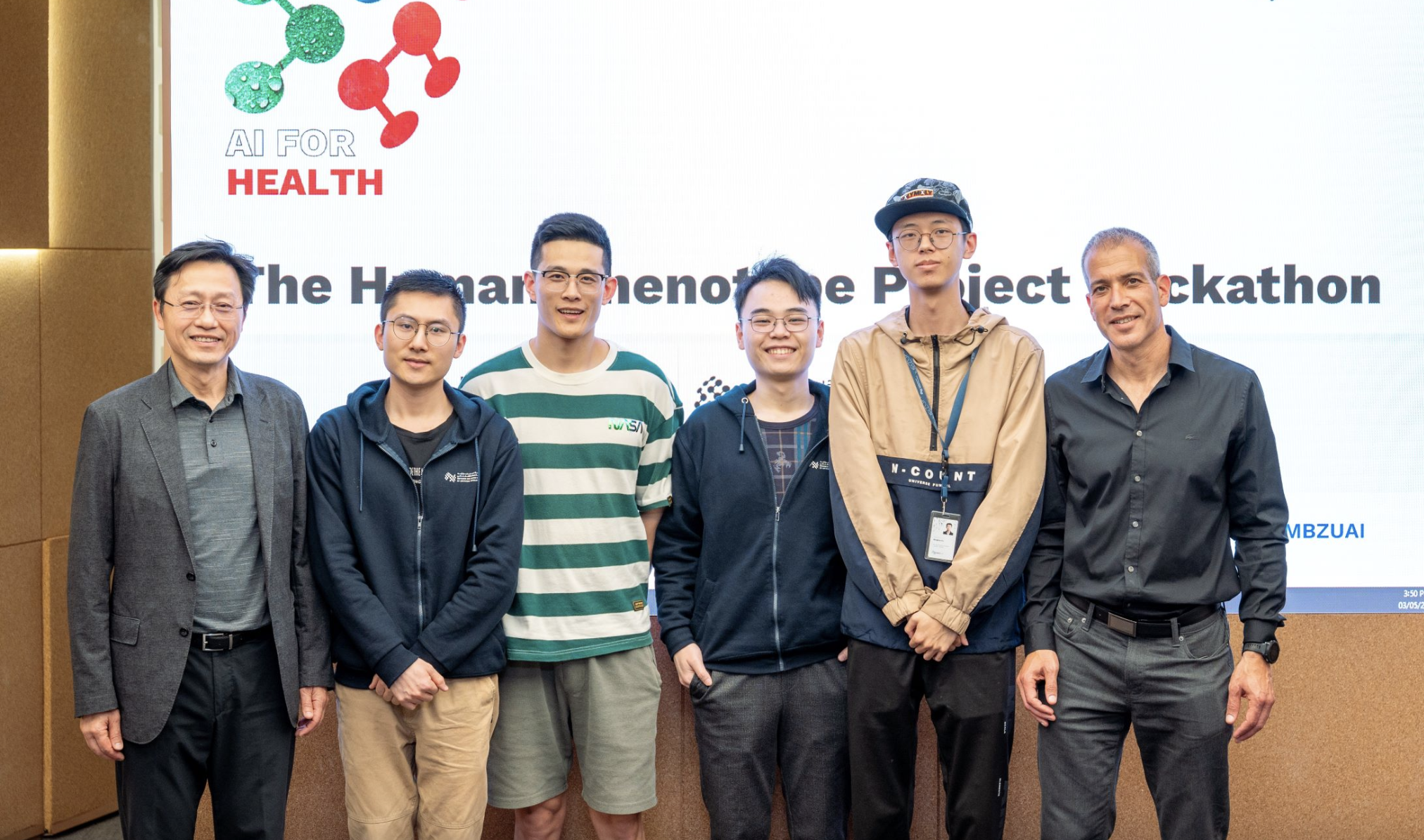
Mohamed bin Zayed University of Artificial Intelligence (MBZUAI) and the Weizmann Institute of Science (WIS) hosted the first-ever Human Phenotype Project Hackathon in Abu Dhabi. The event brought together 24 postgraduate students and researchers from diverse backgrounds to tackle some of the most pressing challenges in healthcare.
The two-day hackathon focused on analyzing “real data” from a deep-phenotype multi-omic biobank to create innovative solutions addressing challenges in personalized and predictive analytics within healthcare.
The hackathon is centered on WIS and Pheno.AI’s Human Phenotype Project (HPP) in Israel – the world’s deepest phenotype cohort – which has already seen the institute develop a database of multi-omic, clinical, and digital measurements of health for more than 10,000 participants. The project’s deep profiling includes each individual’s genome, as well as a comprehensive list of other omics – meaning details of the constituents and functioning of cells – in addition to information such as medical history, lifestyle and nutritional habits, vital signs, blood tests, continuous glucose and sleep monitoring, gut and oral microbiome, and immune system.
The event was part of MBZUAI’s and WIS’s ongoing partnership to promote AI research and carry out both basic and applied research in machine learning, computer vision, natural language processing, computational biology, and more. The HPP’s goals include disease prediction and prevention, personalized treatment, and lowering the cost of drug development.
The participants included 14 postgraduate students from MBZUAI, six from Weizmann Institute, and four from other research institutions. Hackathon participants received training from Pheno.AI on how to use the HPP trusted research environment, a secured cloud-based platform that provides access to the HPP datasets. This is the first time an international university has been given access to this data. The participants worked in teams and applied AI-based techniques to develop various predictive models for a range of data types to predict specific values and phenotypes.
Professor Eran Segal, leader of the HPP, a faculty member at WIS, and adjunct professor at MBZUAI, said: “The HPP Hackathon puts the participating students at the forefront of innovation in biomedicine, working with cutting-edge data and analytical tools to make discoveries and create solutions that have the potential to improve patient care and outcomes. It also served as a reminder of the power of collaboration, bringing together some of the best talent from MBZUAI and Weizmann Institute, to tackle healthcare challenges of global significance.”
The six competing teams were each given one of two challenges – a predictive challenge and a creative challenge. For the predictive challenge, the teams had to predict the chronological age of individuals on the database based on markers of biological age. The winning team, from MBZUAI (LongKang Li, Gongxu Luo, Minghao Fu, and Ding Bai), came first by carefully selecting which phenotype datasets to use, and which to ignore. For example, they realized that gut microbiome data was too complex for this specific task, and instead focused on other data, including sleep monitoring and various blood pressure-related measurements. They also used machine learning models such as gradient-boosted trees to help deliver the best results.
Meanwhile, a team from WIS (Guy Lukster and Renee Zacharowicz) won the creative challenge, with an idea to expand the value of the HPP database to the broader population by allowing them to gain insights about their own health from it. The team’s idea was to passively collect data from individuals, for example, data from their phones, such as photos of the food they eat, in order to analyze their diet. Using these insights, the team then made predictions about the health of these individuals – including their risk of having or developing Type-2 diabetes – by analyzing them as if they were part of the HPP dataset with similar dietary habits. The team demonstrated that this approach could provide valuable insights about people’s risk of Type-2 diabetes based purely on passive data.
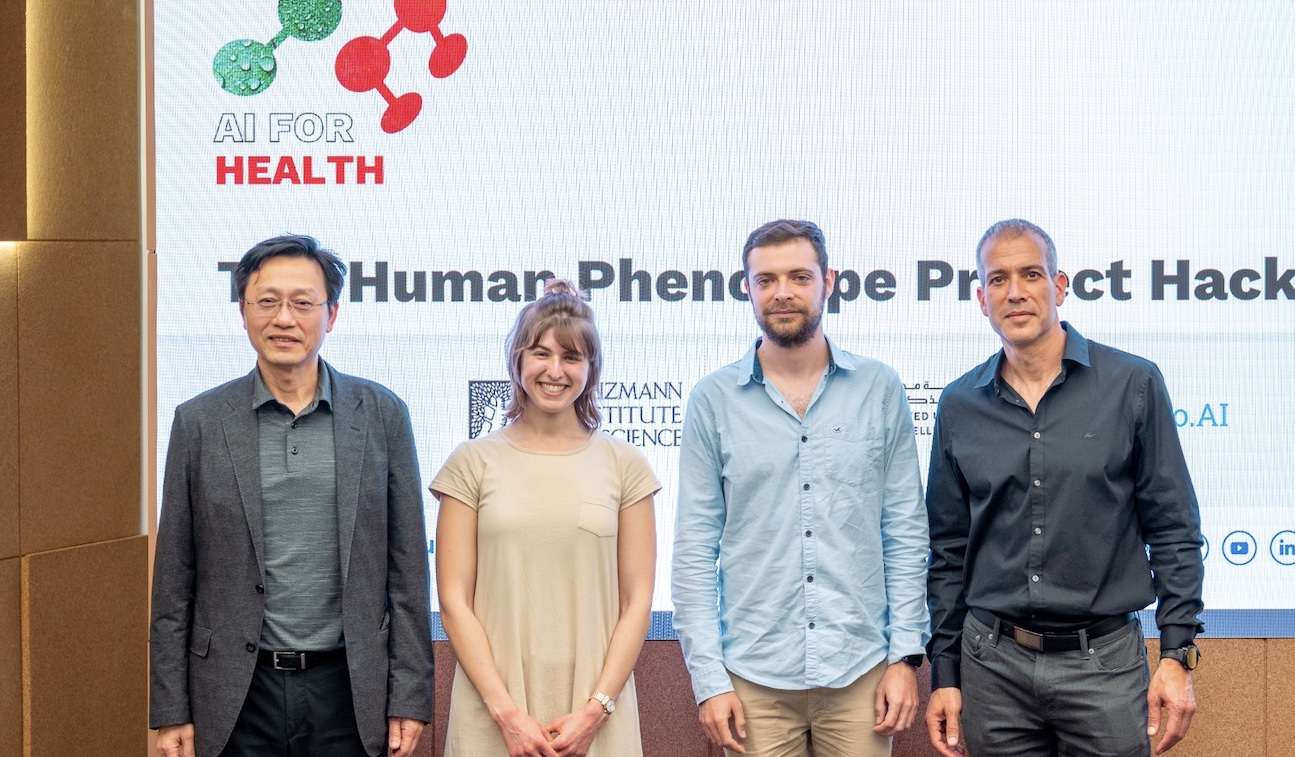
“The UAE and other parts of the world could benefit from similar deeply-phenotyped human databases that can enable a better and healthier future,” MBZUAI Acting Provost, Timothy Baldwin, said. “The HPP Hackathon was a remarkable event, bringing together students, faculty, and experts from diverse organizations and giving them the opportunity to expand their skills while networking with peers to make a tangible impact on tackling various health conditions and diseases.
“It also demonstrated the power of AI to analyze vast amounts of data and identify potential markers that would not otherwise be possible to achieve at this scale. Such work can lead to new discoveries in personalized and predictive analytics within healthcare, potentially paving the way for new treatments,” Baldwin continued.
The teams received guidance and support from mentors and experts, including faculty members from MBZUAI, WIS, and Pheno.AI, the company which built the HPP platform and manages the collection of data for the project. The judging panel comprised of Professor Agathe Guilloux, Associate Professor Martin Takáč, and Visiting Associate Professor Tongliang Liu, all three from the Machine Learning Department at MBZUAI, together with Dr. Hagai Rossman and Dr. Alon Diament Carmel, who are both senior researchers at Pheno.AI.
- student achievements ,
- research ,
- sustainability ,
- weizmann ,
- health ,
- phenotype ,
- partnership ,
Related
UAE to deploy 8 exaflop supercomputer in India to strengthen local sovereign AI infrastructure
MBZUAI will partner with G42, Cerebras, and India’s Centre for Development of Advanced Computing to deliver the.....
- supercomputer ,
- sovereign ,
- collaboration ,
- summit ,
- partnership ,
Not just another deck: how MBZUAI’s okkslides is redefining executive communication
The MBZUAI startup is turning messy research and organizational context into decision-ready narratives with a human-in-the-loop AI.....
Read MoreMBZUAI report on AI for the global south launches at India AI Impact Summit
The report identifies 12 critical research questions to guide the next decade of inclusive and equitable AI.....
- Report ,
- equitable ,
- global south ,
- AI4GS ,
- social impact ,
- inclusion ,
- summit ,
